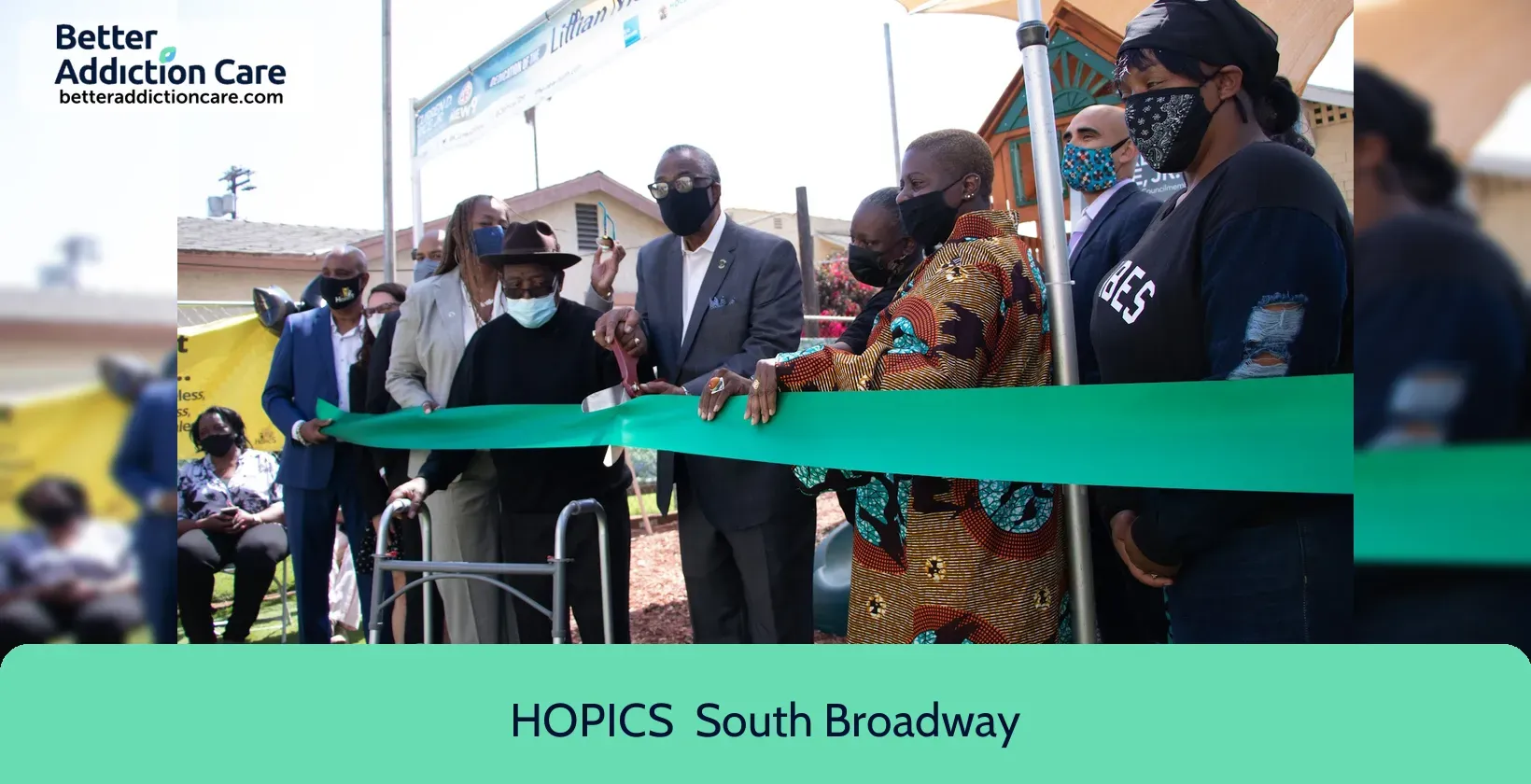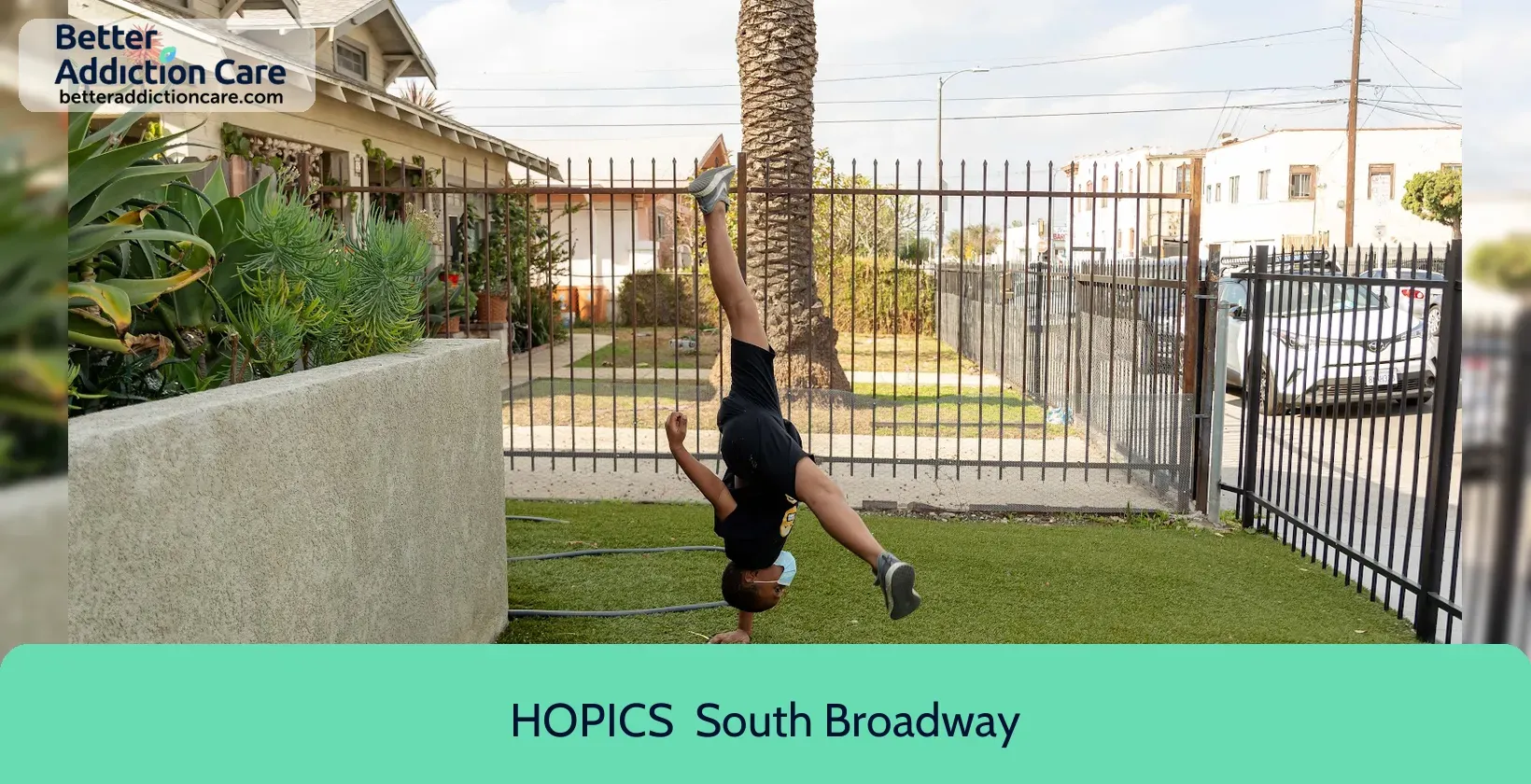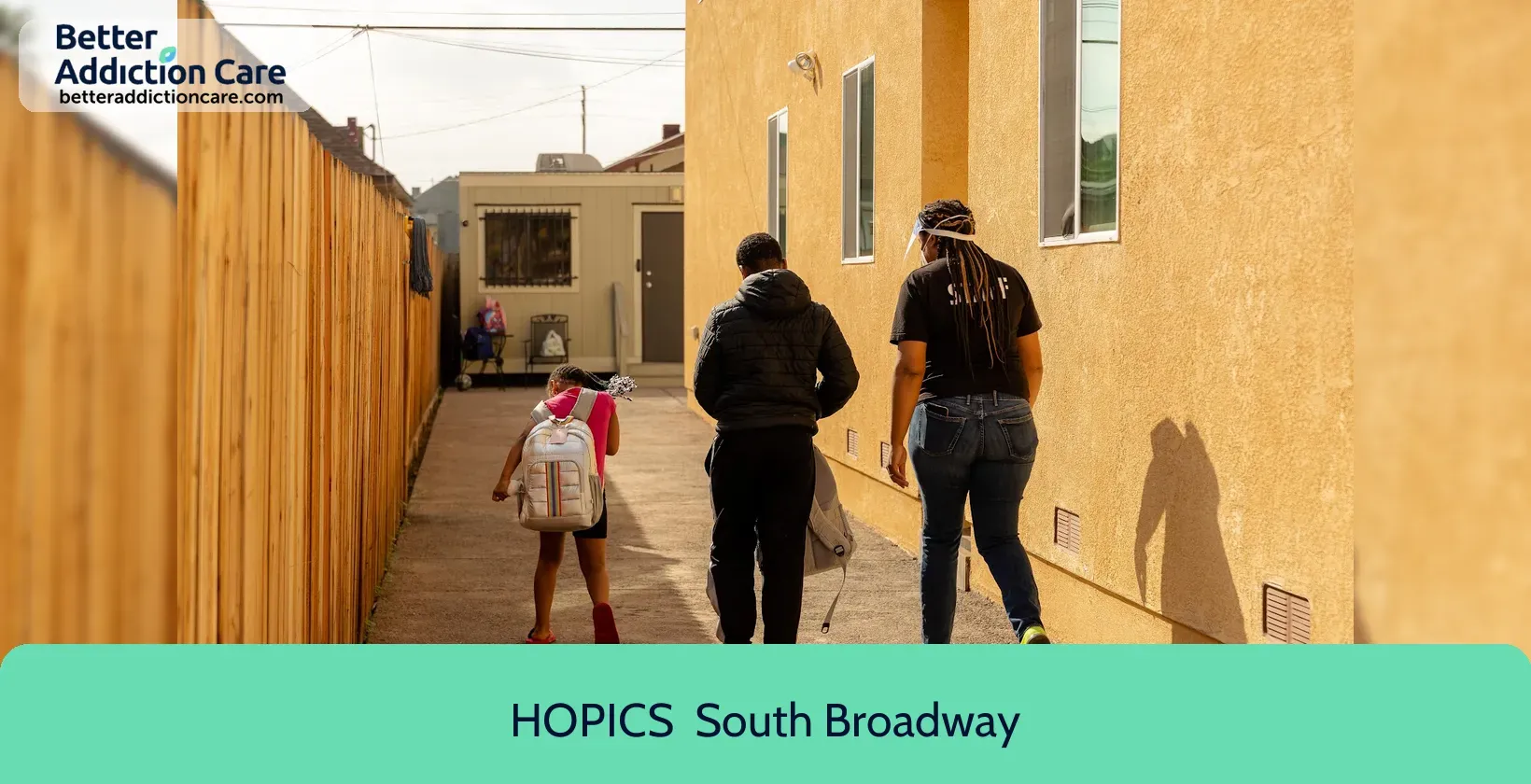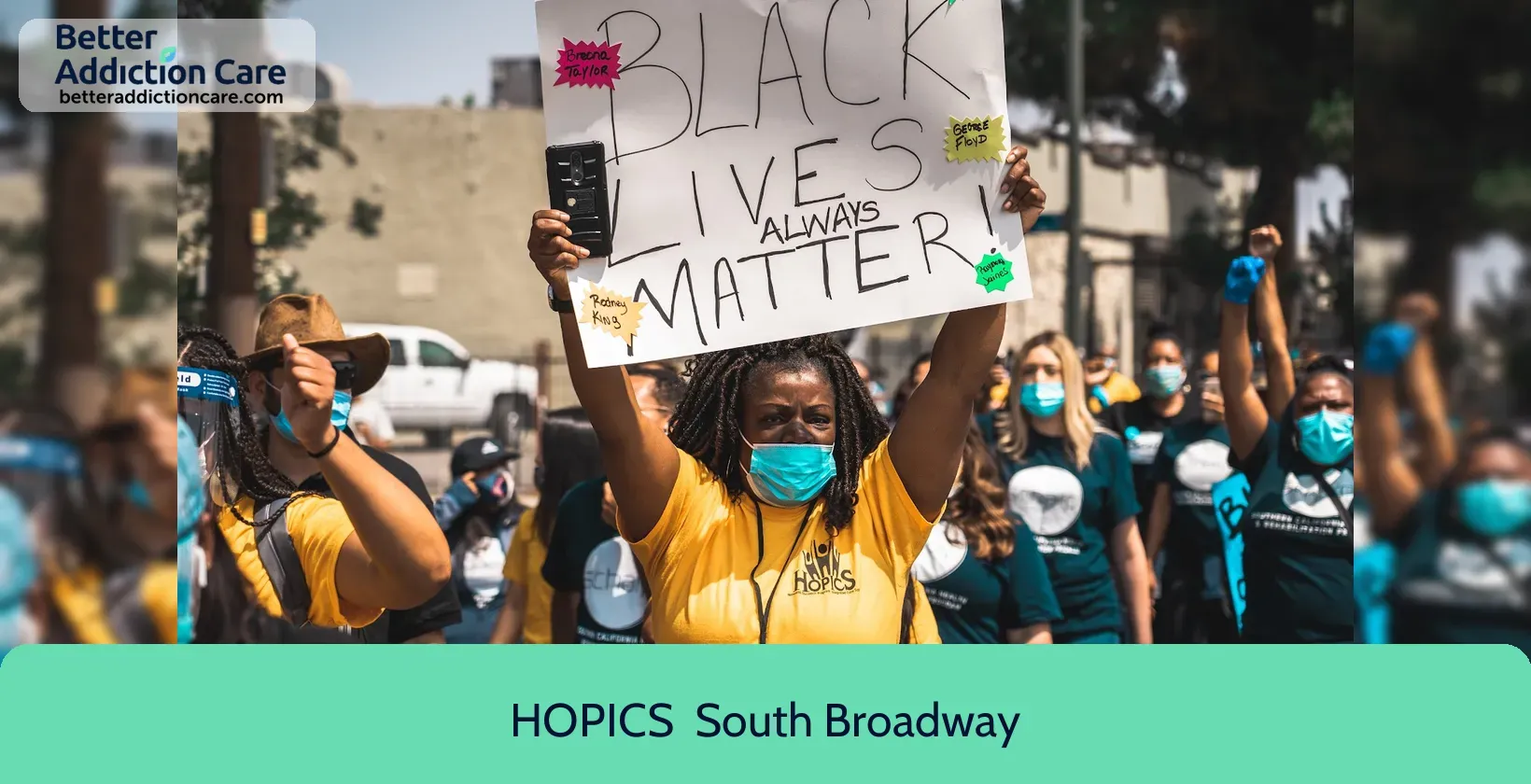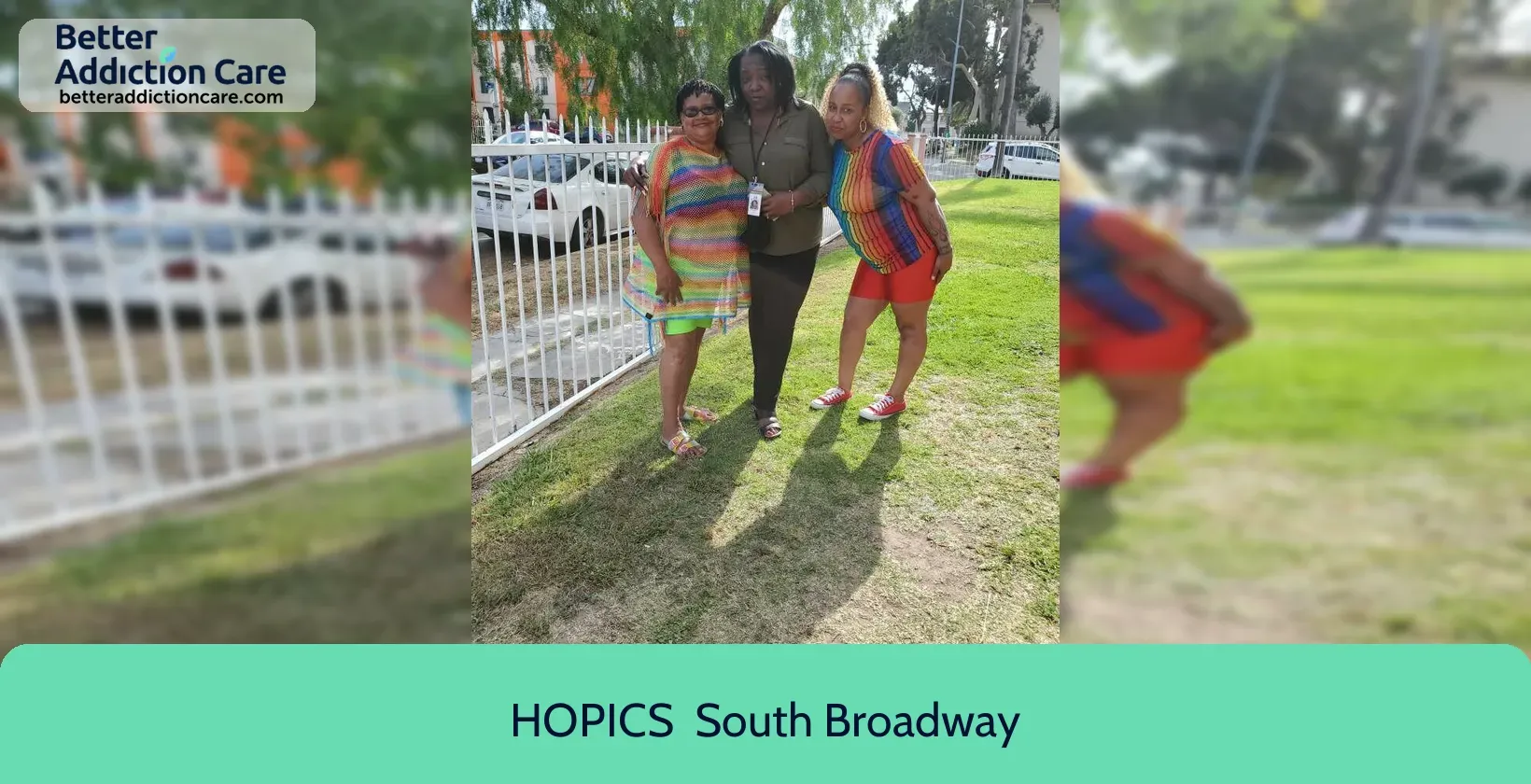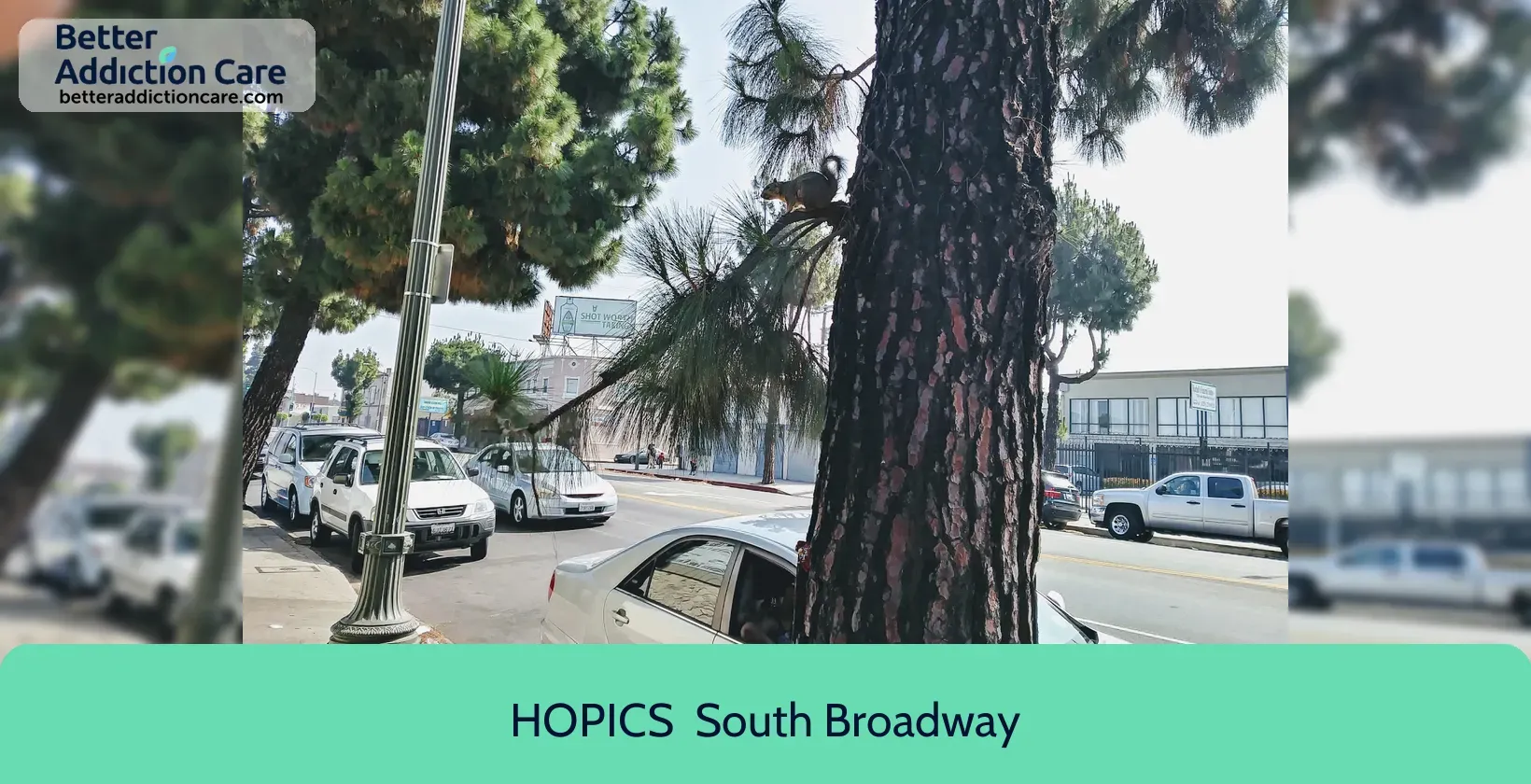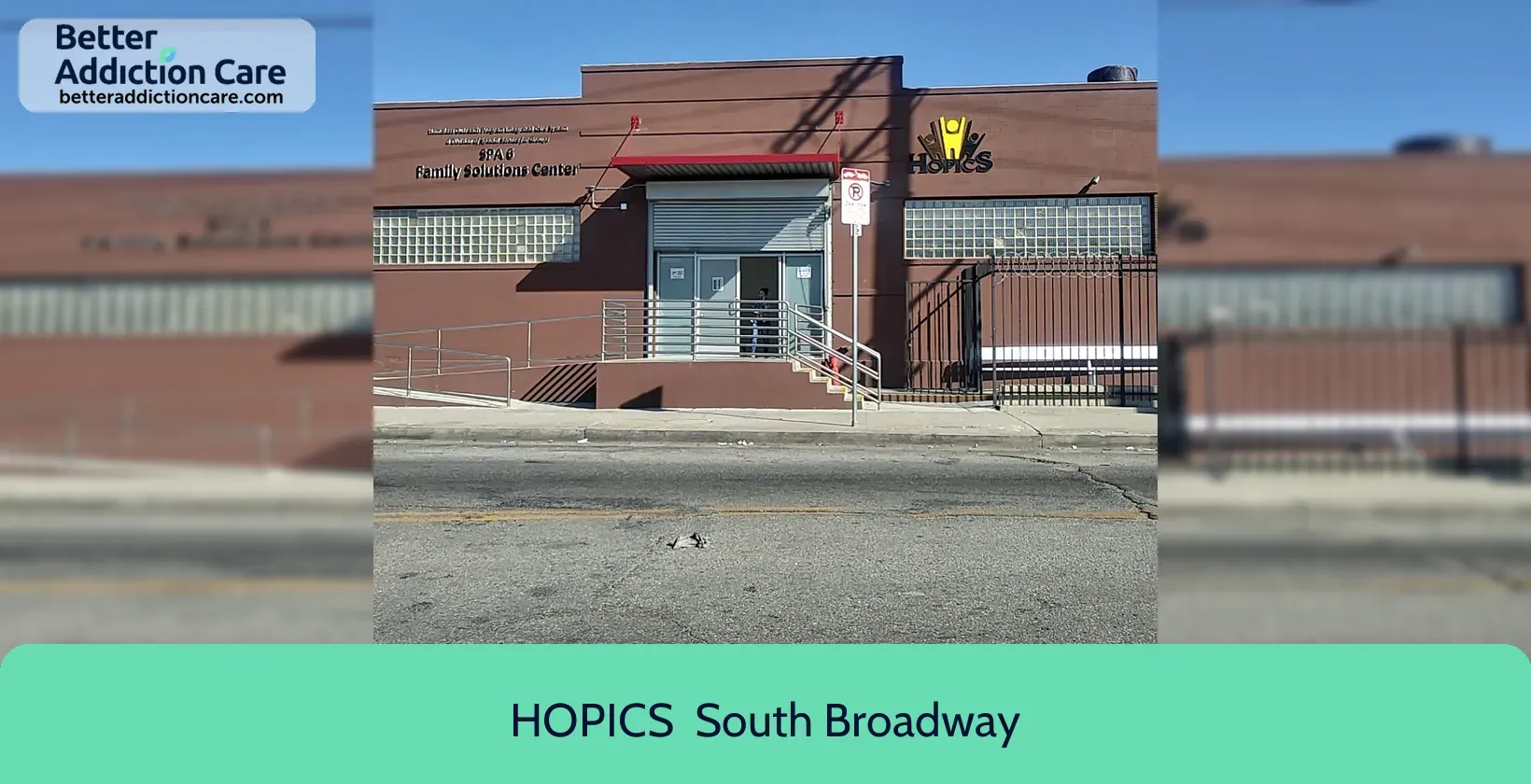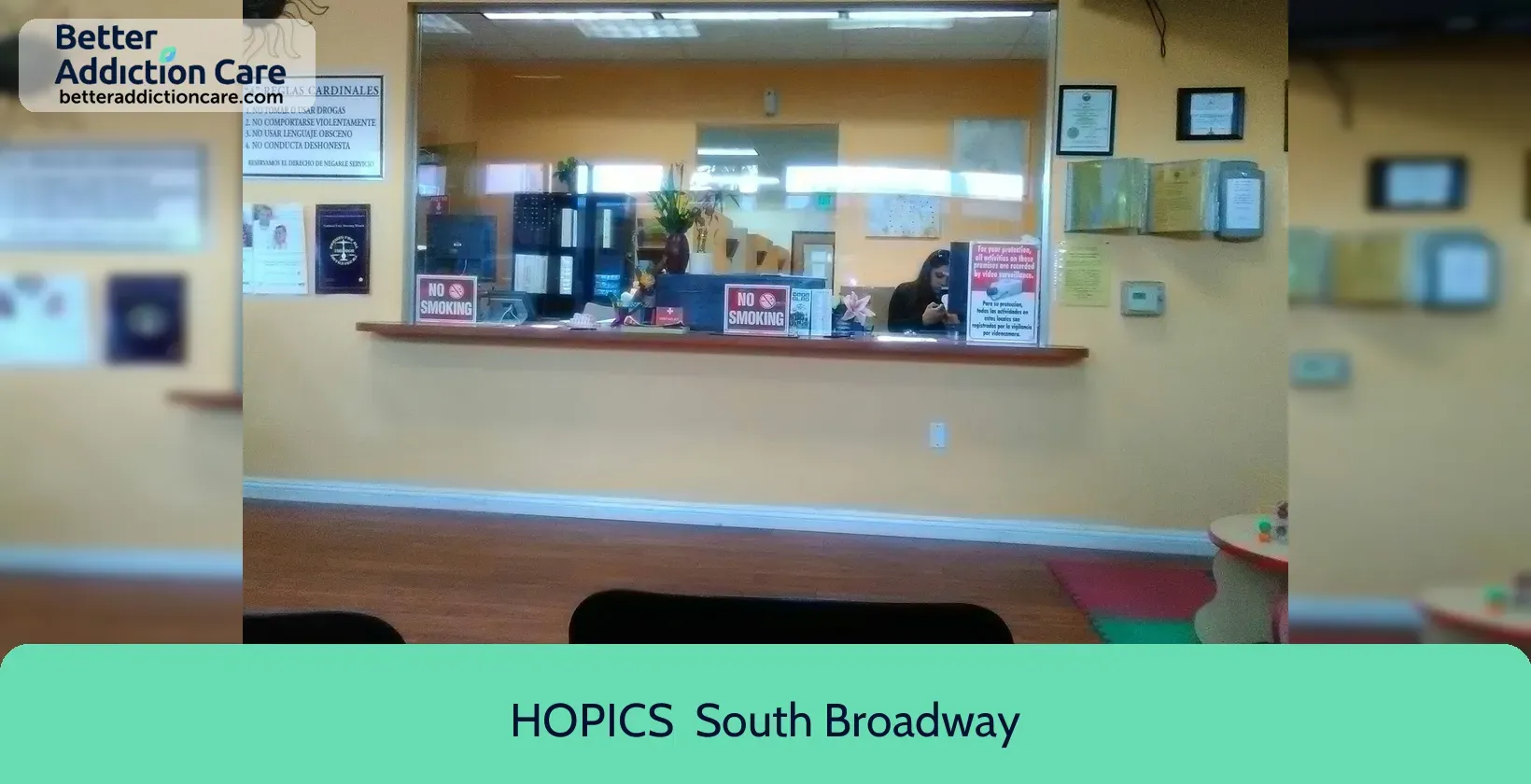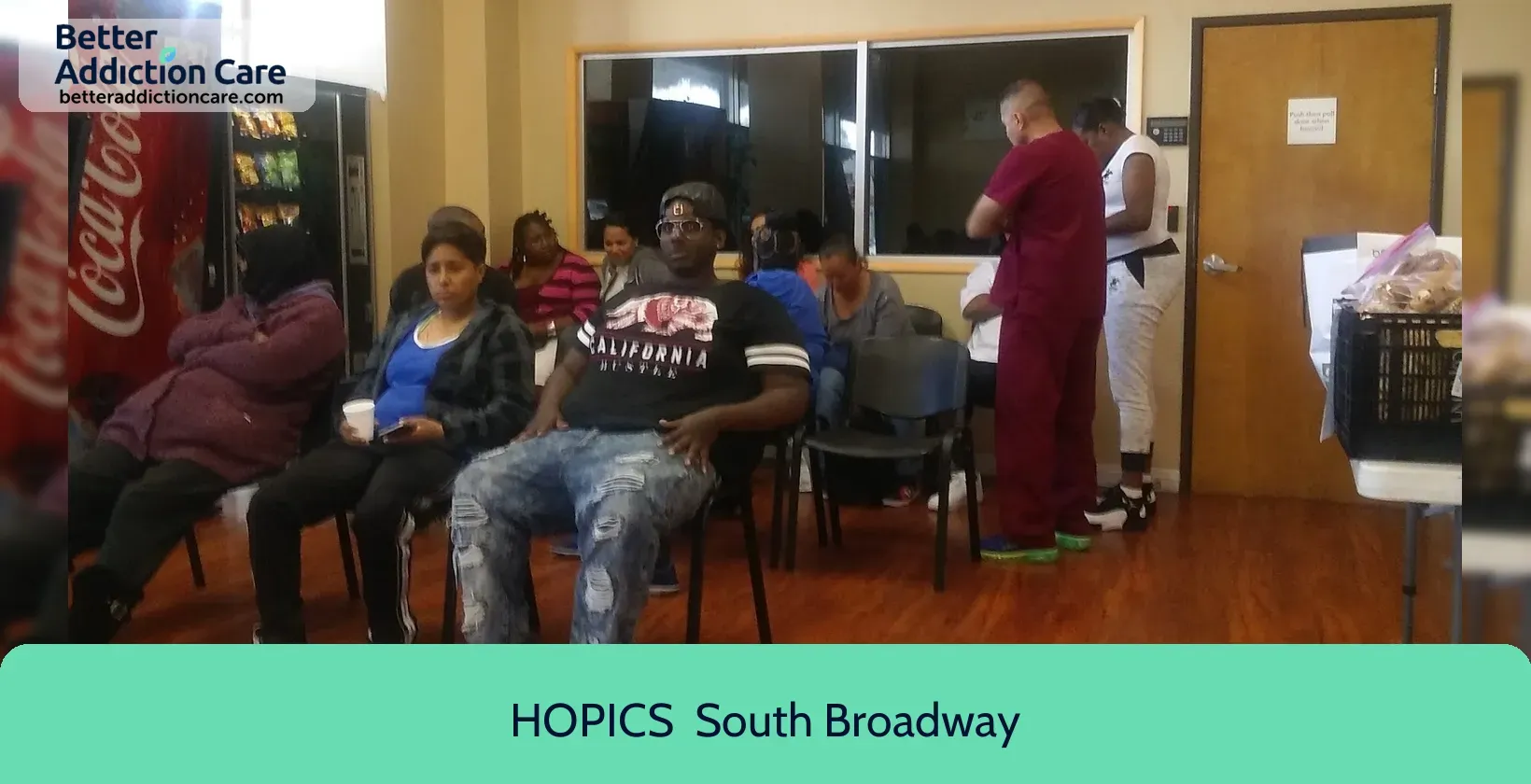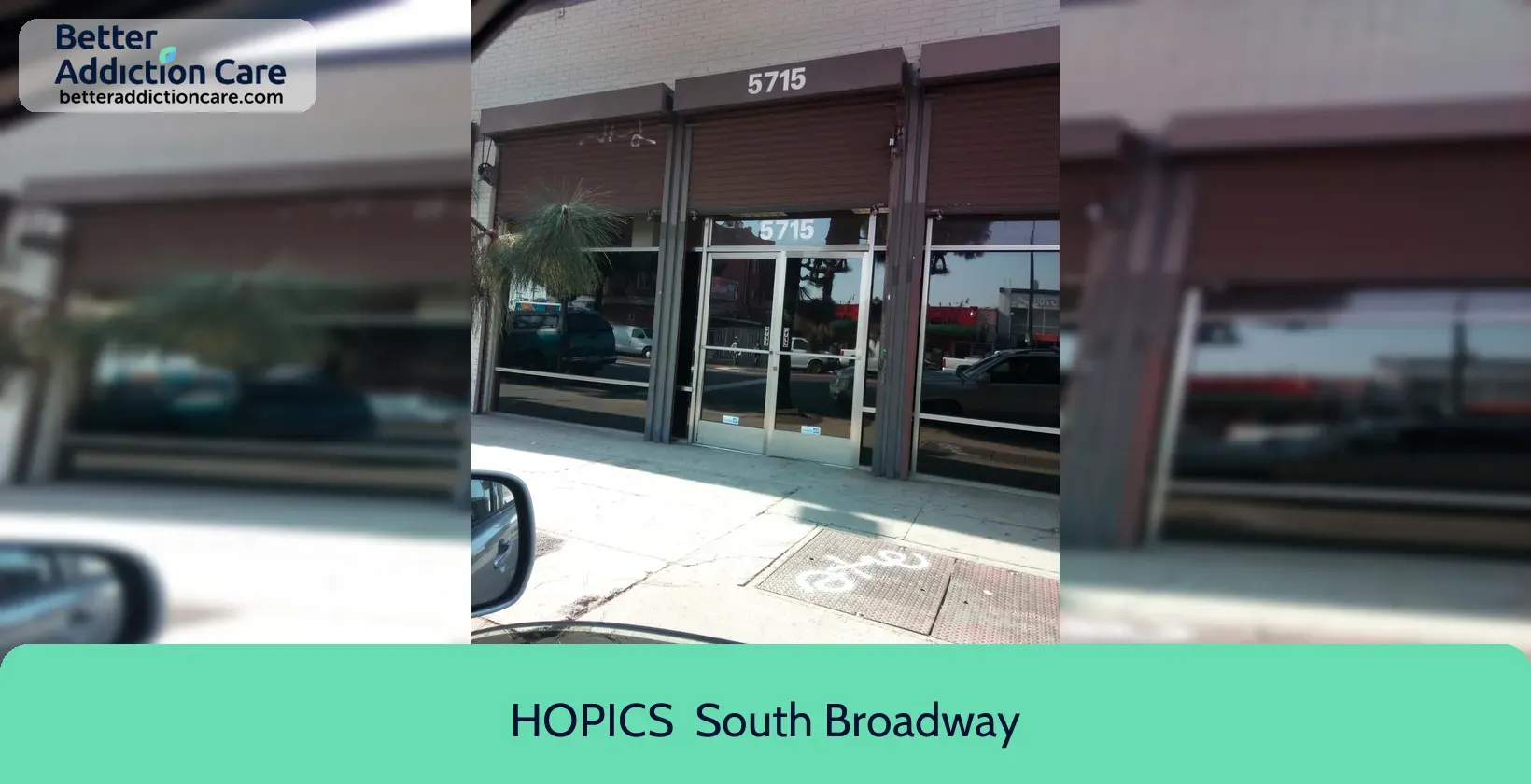HOPICS - South Broadway
Overview
HOPICS - South Broadway is an substance abuse treatment center that provides inpatient and outpatient detoxification, for men and women from 18+ years of age. As part of their special programs, HOPICS - South Broadway treats clients with hiv or aids, pregnant/postpartum women, and clients who have experienced trauma. To help patients achieve sobriety, HOPICS - South Broadway provides intake assessments. Afterward, patients receive group counseling, trauma-related counseling, and family counseling during treatment. HOPICS - South Broadway is located in Los Angeles, California, providing treatment for people in Los Angeles County, accepting access to recovery (atr) voucher, cash or self-payment, and state-financed health insurance plan other than medicaid.
HOPICS - South Broadway at a Glance
Payment Options
- Access to Recovery (ATR) Voucher
- Cash or self-payment
- State-financed health insurance plan other than Medicaid
- Sliding fee scale (fee is based on income and other factors)
- Medicare
Assessments
- Comprehensive mental health assessment
- Comprehensive substance use assessment
Age Groups
- Adults
- Young adults
Operation
- Private for-profit organization
Highlights About HOPICS - South Broadway
6.65/10
With an overall rating of 6.65/10, this facility has following balanced range of services. Alcohol Rehabilitation: 8.00/10, Drug Rehab and Detox: 6.00/10, Insurance and Payments: 6.00/10, Treatment Options: 6.61/10.-
Alcohol Rehabilitation 8.00
-
Treatment Options 6.61
-
Drug Rehab and Detox 6.00
-
Insurance and Payments 6.00
Treatment At HOPICS - South Broadway
Treatment Conditions
- Mental health treatment
- Alcoholism
- Opioid Addiction
- Substance use treatment
- Co-occurring Disorders
Care Levels
- Intensive outpatient treatment
- Detoxification
- Outpatient
- Hospital inpatient treatment
Treatment Modalities
- Group counseling
- Trauma-related counseling
- Family counseling
- Individual psychotherapy
- Cognitive Behavioral Therapy
Ancillary Services
Languages
- Spanish
Special Programs
- Clients with HIV or AIDS
- Pregnant/postpartum women
- Clients who have experienced trauma
Get Help Now
Common Questions About HOPICS - South Broadway
Contact Information
Other Facilities in Los Angeles

6.88

6.88

6.82

7.40

7.00

7.34

7.23
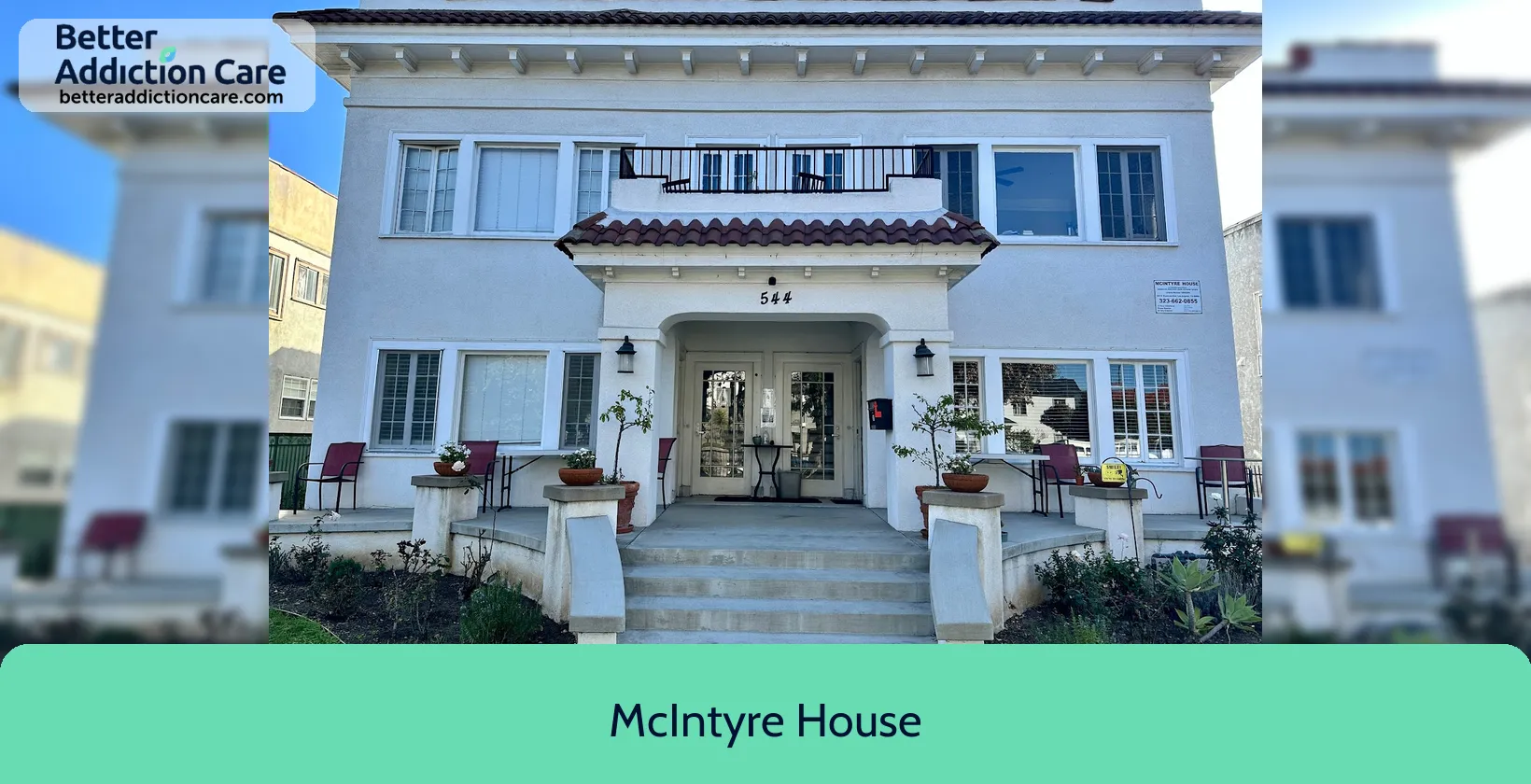
6.80
DISCLAIMER: The facility name, logo and brand are the property and registered trademarks of McIntyre House, and are being used for identification and informational purposes only. Use of these names, logos and brands shall not imply endorsement. BetterAddictionCare.com is not affiliated with or sponsored by McIntyre House.
